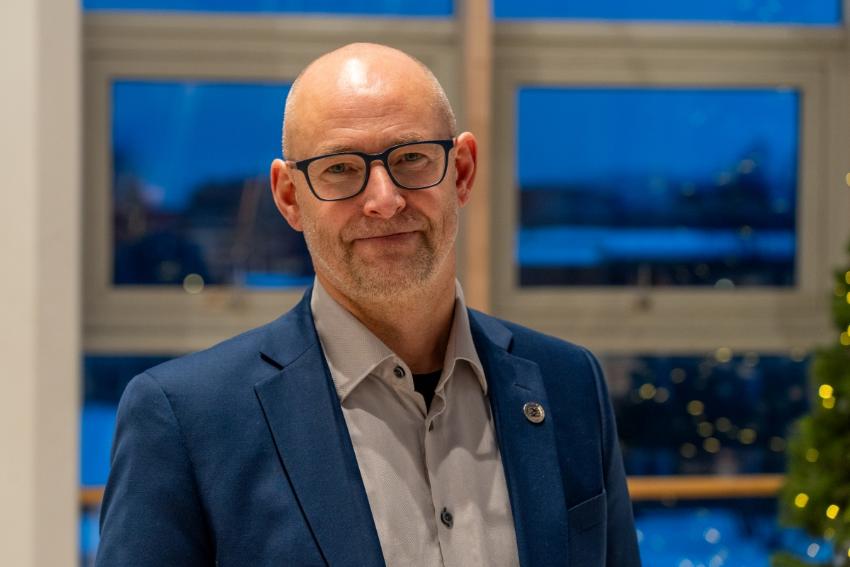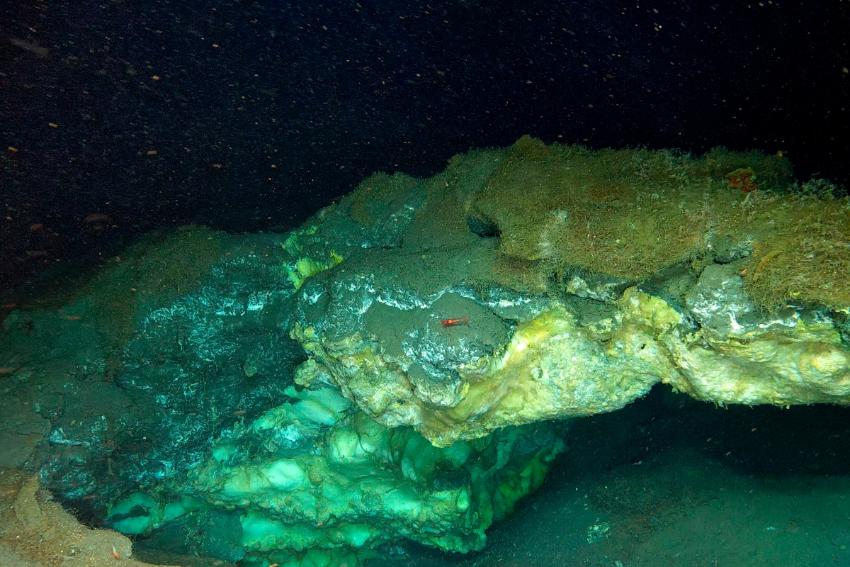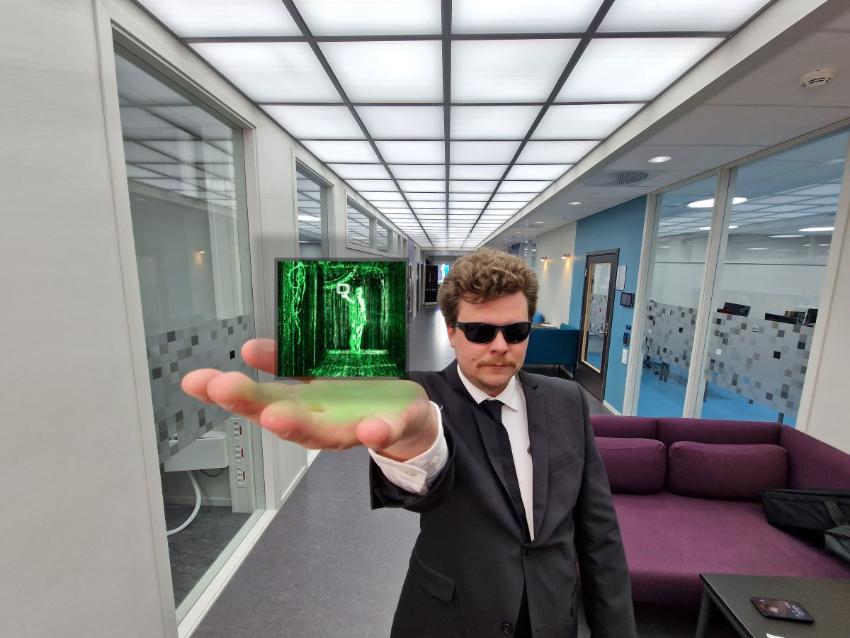Scottish universities open doors for UiT students
After Brexit, British universities have strengthened research and teaching collaborations focused on the Arctic through the UArctic network. This, among other things, enables UiT students to study at four Scottish universities without paying tuition fees.

Do you want to study in the United Kingdom? In recent years, this has presented some challenges as Brexit has created many obstacles for European university cooperation and exchange. This is reflected in the fact that the number of exchange agreements between UiT and British universities has been halved since 2016. After Erasmus+ agreements with UK partners were phased out in 2023, UiT has only sent out one third of the number of students who participated in exchanges in the years before.
Also, when Norwegian students first arrive in the UK, it can be quite an expensive experience. As reported by NRK in July, this is due in part to high tuition fees, price increases, and a weakening of the Norwegian krone.
Do you have questions about UArctic or north2north exchange? Please contact:
Natalia Kononova, Senior Advisor at the Section for International Cooperation
Email: natalia.kononova@uit.no
Exchange with UK
However, there are measures that can compensate for the obstacles that get in the way of exchange. One answer might be to apply for exchange through the UArctic network's mobility program north2north (n2n). This is a scheme that can make exchanges more affordable and easier to carry out, for both students and university staff.
Currently, 21 British higher education and research institutions are members of UArctic, a network that facilitates research and teaching centered on Arctic perspectives. Through UArctic, researchers and university staff can now apply for funds to work at all institutions that hold membership.
UiT students also have the opportunity to apply to participate in north2north exchanges at a selection of British universities (see list below) where they can apply for exemption from paying tuition fees. However, this is contingent on the universities being included in the multilateral n2n program, which encompasses 70 educational institutions across several continents.
Currently, this scheme includes four Scottish universities and the Royal College of Art. This fall, another English educational institution, the University of Hull, will also be included in the n2n program.
You just need to turn the normal map of Europe upside down to see how closely Scotland and Northern England are linked with the Arctic.
Facts about the University of the Arctic (UArctic)
UArctic is a university alliance founded in 2001 that promotes research and education focused on conditions in the Arctic.
It is one of the largest networks for higher education and research in the world.
200 institutions and organizations across 24 time zones, in eight Arctic countries, are members of UArctic.
There are also numerous members in non-Arctic countries.
Advantages created by exchange
Exchange with the United Kingdom through the n2n program has so far been used on a modest scale. Over three semesters in 2023 and 2024, 21 students from Norway have participated in this type of exchange with Scottish universities. Additionally, 11 university staff from Norwegian member institutions have also participated in exchanges with Scottish universities, with n2n scholarships. Pro-rector at UiT, Kathrine Tveiterås, believes there is significant potential to increase exchanges between the United Kingdom and Northern Norway through the program.
"Researchers in Norway and the United Kingdom face many similar issues and they also have a well-established research collaboration. This provides opportunities for further collaboration, for example through master's and PhD theses, and for improving general knowledge exchange for both students and staff. Therefore, it's great that we have an available tool through north2north that reduces practical barriers. I hope more people become aware of this really good opportunity," states Tveiterås.
British higher education and research institutions with exchange of UArctic researchers and university staff:
Durham University
Glasgow Caledonian University
Glasgow School of Art
Heriot-Watt University
Leeds Beckett University
Oxford University Polar Forum
Scotland's Rural College
Scott Polar Research Institute
University of Dundee
University of Edinburgh
University of Glasgow
University of Hull
University of Liverpool
University of St. Andrews
University of Stirling
University of Westminster
Have much in common
One of those actively working to facilitate university collaboration between Norway and Scotland is Davy McCracken, professor of ecology and agriculture at Scotland's Rural College. He emphasizes that culturally, the connections between Scandinavia and Britain have developed over several hundred years. "You just need to turn the normal map of Europe upside down to see how closely Scotland and Northern England are linked with the Arctic, compared to how close Southern England is to continental Europe," McCracken says jokingly.
He points out that universities in Scotland and Northern Norway have much in common in how they orient themselves towards finding solutions to societal challenges. This can involve Arctic agriculture and fishing, long distances between settlements and sparse populations, depopulation, or lack of housing, jobs, and healthcare services.
"I am sure that we are all interested in being able to be useful to local communities whether it is in the Arctic or elsewhere. Researchers at the University of Tromsø are very skilled in researching conditions in the Arctic, but you also have other fields where you have specialized expertise, such as linguistics, health, and ecology. We would like to exchange knowledge and expand our research collaboration with you in these areas," adds McCracken.
Much to be learned
Another bridge-builder for international cooperation between Scotland and Norway is Neville Wylie, professor of history, from the University of Stirling. Over several years, they have collaborated with researchers at UiT in fields such as economics, environmental studies, aquaculture, philosophy, and psychology. This interdisciplinary collaboration has been clearly expressed in the GUESSED project, where researchers from both universities analyze decision-making during avalanches. He believes the Arctic has become a key arena for research communities in the UK.
"The Arctic is obviously becoming increasingly important geopolitically, due to climate change and a tense security situation. There has been a renewed focus on this part of the world. Through cooperation in the UArctic alliance, we have found a much more holistic way to handle challenges in the Arctic. We in the UK can learn a lot from this cooperation," he points out.
British higher education institutions which offer north2north exchange (students):
University of Aberdeen
University of Strathclyde
University of the Highlands and Islands
Robert Gordon University
Royal College of Art


